About the conference
*Bookings closed*
2024 will be a critical election year. What difference could it make to the future of social security, the lives of low-income families and the work of frontline advisers? Welfare Rights 2024 provides a unique opportunity to get up to speed with the latest developments in UK and Scottish social security as well as join discussion with political leaders, social security experts and policy thinkers to discuss what’s needed next from our social security system.
The conference offers a range of topical workshops to discuss the latest on transitional protection in the move to universal credit, intensifying work-related conditions, issues for tenants getting support with rent, the latest on the roll out of Scottish benefits, preparing advisers for new Scottish benefit appeals and practical approaches to assisting prisoners and their families.
Programme for Friday 7 June 2024
| Time | Session |
|---|---|
| 09:30 | Arrival, registration and exhibition stand viewing |
| 10:00 | Setting the scene - John Dickie Director of CPAG in Scotland |
| Keynote speaker - Shirley-Anne Somerville MSP Cabinet Secretary for Social Justice | |
| 11:00 | Refreshment break |
| 11:15 | Workshops - morning session |
| 12:30 | Lunch and exhibition stand viewing |
| 13:30 | Workshops - afternoon session |
| 14:45 | Refreshment break |
| 15:00 | Plenary session, chaired by Brian Taylor, Political Commentator and Herald columnist: |
| Demanding better – what next for social security in a critical election year? | |
Speakers: Emma Congreve Deputy Director, Fraser of Allander Institute Gavin Kelly Chair, Resolution Foundation Sara Ogilvie Director of Policy, Rights and Advocacy at CPAG | |
| 16:00 | Final remarks and close |
Workshops
Can’t Pay, Won’t Pay – rent, liability and universal credit
Henri Krishna Welfare Rights Adviser, CPAG in Scotland
Frances Ryan Welfare Rights Adviser, CPAG in Scotland
To get your rent paid through universal credit, you must live in the property and be liable for the rent. But what happens if you are not named on a tenancy, or someone who is does not pay their share of the rent or moves out? In these situations universal credit claimants often find that they are refused housing costs or get less than they need to cover the rent. In this workshop, we will look at what should happen in these circumstances and what evidence can be provided to support a successful claim.
First-tier Tribunal for Scotland Social Security Chamber – current processes and future changes
Andrew Veitch President of the Social Security Chamber
Kyle McGrath Operations Manager & Delegated Caseworker, Social Security Chamber
Jon Shaw Welfare Rights Adviser, CPAG in Scotland
With the roll out of Scottish benefits, more of our time as advisers will be occupied by challenging Scottish benefit determinations via an appeal to the First-tier Tribunal for Scotland Social Security Chamber. This workshop will prepare and update advisers for what they can expect when representing at these appeals, both now and in the future. It will cover the stages of an appeal from receipt to disposal, and will include review and permission to appeal requests, some important differences from reserved benefit appeals, practical tips for representatives and some planned changes to the rules.
Prison and benefits
Alison Gillies Welfare Rights Adviser, CPAG in Scotland
Chad Henshaw and Victoria Byrne Parkhead CAB's Barlinnie Prison project
Going into prison, either on remand or serving a sentence, has a significant impact on social security benefits. The rules are not consistent across different benefits and it can be difficult to get your head around the impact for individuals going into prison and being released. This workshop provides an opportunity to clarify some of the tricky issues that can arise and discuss practical approaches to assisting prisoners and their families. We will be joined by an adviser from Parkhead CAB’s Barlinnie Prison project, who will give us the benefit of their first-hand experience advising prisoners and their families.
Sanctions and conditionality
David Webster Honorary Senior Research Fellow, University of Glasgow Urban Studies
Angela Toal Welfare Rights Adviser, CPAG in Scotland
Parents and part-time workers increasingly have intensive work-related conditions in universal credit which exposes them to sanctions. This workshop will give a round up of recent and proposed changes to conditionality and look at what the statistics tell us about trends in how sanctions are applied. There will be an opportunity to discuss how advisers are supporting clients in practice, including tax credit claimants migrating to universal credit who are subject to conditionality for the first time.
Scottish social security - progress and plans
Moira Escreet Welfare Rights Adviser, CPAG in Scotland
Judith Paterson Head of Advice and Rights (Scotland), CPAG in Scotland
We are six years into the devolution of benefits to Scotland. Many people with disabilities and health conditions have already had their benefit moved to Social Security Scotland and the move for carers begins this year. This workshop takes stock of progress, focusing on the latest on disability benefits, how carers will transfer to the new carer support payment and how it differs. Looking ahead, the workshop will discuss the next disability benefits to be devolved and plans for improvements in the Scottish system.
The transitional SDP element
Simon Osborne Welfare Rights Adviser, CPAG
Some claimants with severe disabilities get an extra amount in their universal credit on transfer from legacy benefits, specifically to compensate for the absence of disability elements in universal credit. This is the transitional SDP element. But who can get it, and how does this differ from the transitional protection that is promised as part of the managed migration process? This workshop will give an update on the case law and look at what the transitional SDP element is, who qualifies and why it is mainly a feature of the natural migration process.
Universal credit managed migration – advising on transitional protection
Mark Willis Welfare Rights Adviser, CPAG in Scotland
The move to universal credit from legacy benefits is well underway, with all remaining tax credit awards to be terminated by the end of 2024/25. The UK government’s pledge that no one would be worse off at point of transfer has not been the reality for some, while others may find themselves unexpectedly better off on universal credit. This workshop looks at how transitional protection is applied in practice, informed by the latest experiences from advisers through CPAG’s Early Warning System. It will explore ways to challenge decisions and protect against potential overpayments.
How to book your place
The cost of a delegate place, including lunch and conference materials is £245, or £196 if you are a CPAG member.
Sorry this event is now closed to bookings.
Exhibition space
We will have an exhibition space hosting exhibitors showcasing their work, products and services.
The exhibition package includes;
- One exhibitor place
- Attendance at all conference sessions including an AM and PM workshop
- A 4 foot table, table cloth and chair
- Lunch and refreshments
The cost of an exhibition package is £350 (plus VAT). Please note each additional person wishing to attend must book a separate delegate place. If you are interested in exhibiting at our conference please email [email protected]
Exhibitors
We are delighted that the following organisations will be joining us in the conference’s exhibition area. If you would like to book an exhibition stand there’s still time; see the information above, or email [email protected]

AdvicePro is the secure case management application which helps you work flexibly, efficiently and securely. The system was developed in association with AdviceUK, the UKs largest network of advice-providing organisation. AdvicePro currently assists more than 11,226 users and 660 agencies and consortia throughout the UK.

We work to improve the lives of people over 50 and promote their rights and interests. We help older people to be as well as they can be.
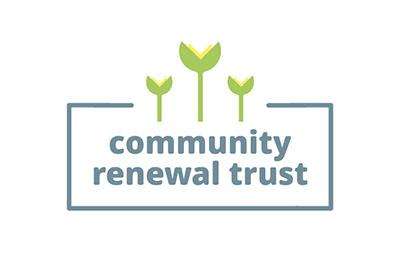
Community Renewal Trust has been testing whole-person, whole-place, systems change in two deprived neighbourhoods in Edinburgh and Newcastle as part of their Lifting Neighbourhoods Together project. They also operate Caledonia Funeral Aid – a social enterprise which provides free support to those facing funeral poverty.
Find out more about Community Renewal Trust on their website

Family Fund are the UK’s largest charity providing grants including family breaks, digital equipment, white goods, clothing, and furniture to families raising disabled and seriously ill children and young people.

At Fife Gingerbread, we support and empower Fife’s lone parents and families in need for better todays and brighter tomorrows.

Home Energy Scotland offer free, impartial energy saving advice. Funded by the Scottish Government, it can also help access financial support to make homes more efficient and cheaper to heat.
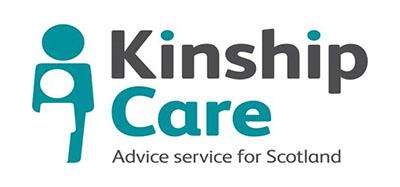
The Kinship Care Advice Service for Scotland provides free, confidential, impartial advice, support, workshops and resources to Kinship families and professionals working with them.

Housing Systems provides a highly regarded, second-tier advice service. In-depth information and support on Universal Credit, Housing Benefit and the wider benefit system via our email query service, website and tools.
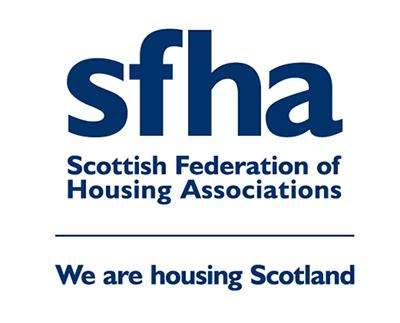
SFHA is the membership body for, and collective voice of, housing associations and co‑operatives in Scotland.
Our members support people’s right to live in a safe, warm and affordable home, in a thriving community. Our mission is to sustain and strengthen the impact our members have on people and communities across Scotland.
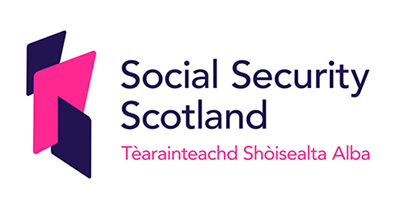
Social Security Scotland was created to deliver a social security system for the people of Scotland based on our values of dignity, fairness and respect.
Find out more about Social Security Scotland on their website
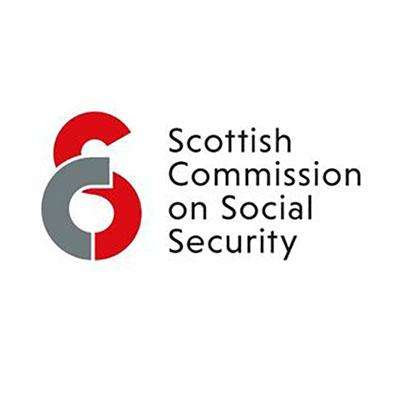
The Scottish Commission on Social Security (SCoSS) is an independent, advisory NDPB, which undertakes scrutiny of the Scottish Social Security System.
Find out more about Scottish Commission on Social Security (SCoSS) on their website

VoiceAbility has been providing independent advocacy services in Scotland since 2022. They work with individuals and local communities to help them understand their rights and have their voices heard.